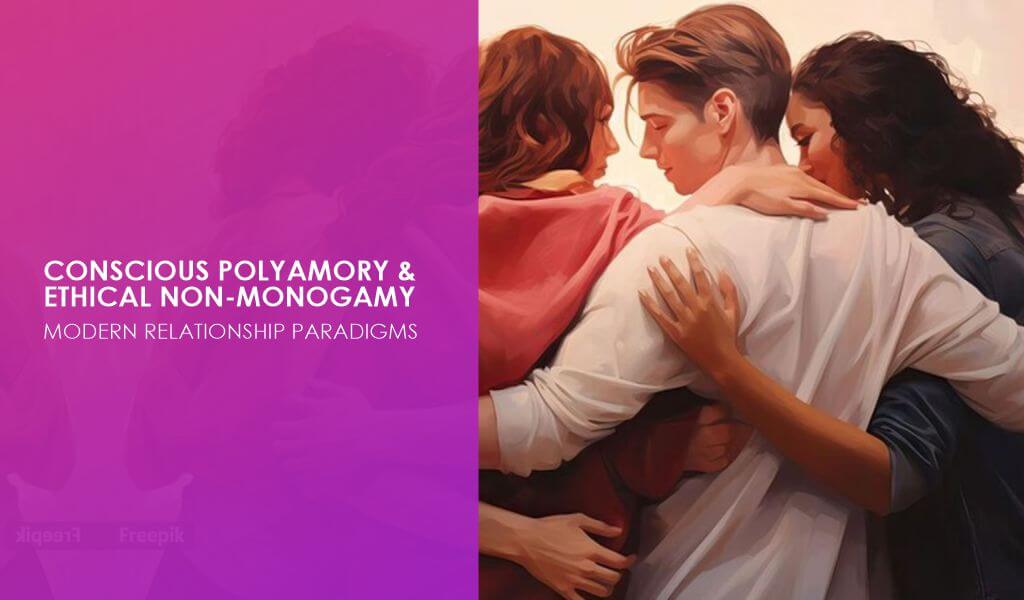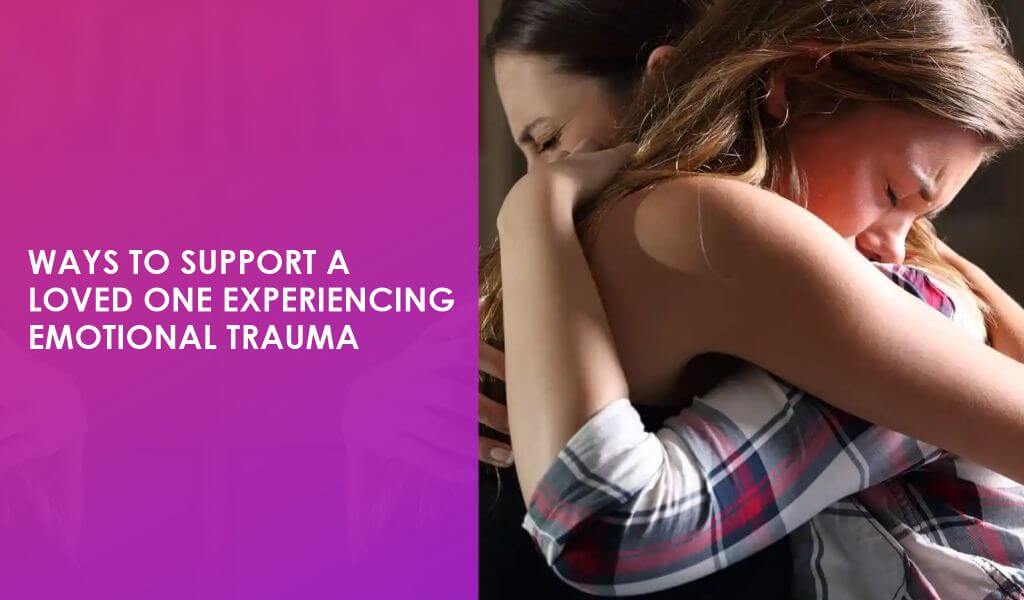
Conscious Polyamory & Ethical Non-Monogamy: Modern Relationship
Relationships are changing. More people today are questioning what it means to love and commit. The old one-size-fits-all model of monogamy no longer feels right for everyone. Instead, many are exploring conscious polyamory and ethical non-monogamy—relationship styles built on honesty, consent, and emotional awareness.
This shift isn’t about “free love” or casual flings. It’s about building relationships with intention, communication, and respect. Conscious polyamory is a deliberate approach to love that values self-awareness and mutual understanding. Ethical non-monogamy expands that concept, offering various ways to connect deeply with multiple partners without deceit or harm.
In this article, we’ll explore what these modern relationship paradigms look like in practice, why people choose them, and how to make them work with integrity and care.
What Is Conscious Polyamory?
Conscious polyamory is about being intentional in how you form and sustain multiple romantic or emotional connections. It’s not just about having more than one partner—it’s about doing so mindfully, with respect and emotional transparency.
At its core, conscious polyamory involves three main principles:
- Self-awareness – Knowing your emotional needs, boundaries, and triggers.
- Open communication – Discussing expectations and feelings honestly with all partners.
- Mutual consent – Ensuring everyone involved is informed and willingly participating.
Many people who practice conscious polyamory view it as an ongoing process of personal growth. It challenges you to confront jealousy, communicate clearly, and learn emotional resilience.
For example, a couple might open their relationship to explore other emotional or sexual connections while maintaining a strong foundation of trust. They talk regularly about feelings, set boundaries, and check in often to make sure everyone feels safe and respected.
Ethical Non-Monogamy: A Broader Relationship Framework
While conscious polyamory focuses on mindfulness and emotional depth, ethical non-monogamy (ENM) is the broader umbrella term for any consensual relationship model that involves more than one partner.
Ethical non-monogamy includes:
- Polyamory – Multiple loving relationships.
- Open relationships – Primary partnerships that allow external sexual or emotional experiences.
- Swinging – Couples engaging in sexual activities with others, often together.
- Relationship anarchy – Rejecting traditional relationship hierarchies and labels altogether.
The keyword in ENM is ethical. It’s not about secrecy or betrayal; it’s about consent and communication. Everyone involved knows the dynamics and agrees to them.
People often confuse ENM with cheating, but the difference is transparency. Cheating breaks trust. Ethical non-monogamy builds it through honesty.
Why People Choose Conscious Polyamory and ENM
The decision to practice conscious polyamory or ethical non-monogamy often comes from a desire for authenticity and emotional expansion.
Here are some of the common reasons people choose these paths:
- Freedom and Autonomy – Some feel limited by traditional monogamy. They value the freedom to form connections without guilt or secrecy.
- Emotional Diversity – Each relationship offers something unique—companionship, intellectual connection, shared hobbies, or intimacy.
- Growth and Self-Discovery – Navigating multiple relationships encourages personal development, empathy, and better communication.
- Honesty and Transparency – Many find that practicing open communication makes all their relationships stronger, including friendships and family ties.
For instance, one person might find deep emotional support with a long-term partner while sharing artistic passion or adventure with another. Both relationships coexist ethically because everyone involved knows and consents.
Communication: The Heart of Conscious Polyamory
If there’s one skill that defines successful ethical non-monogamy, it’s communication. Without it, everything else falls apart.
Practicing conscious polyamory means constantly checking in with yourself and your partners. That includes discussing boundaries, needs, expectations, and emotions, even when those conversations are uncomfortable.
Key communication habits include:
- Regular check-ins – Talking about what’s working and what’s not.
- Active listening – Truly hearing your partner’s perspective without defensiveness.
- Emotional honesty – Expressing jealousy, fear, or insecurity instead of suppressing them.
- Accountability – Owning mistakes and making amends when needed.
A healthy polyamorous relationship often has more structure and clarity than many monogamous ones because everything is negotiated openly. The focus isn’t on avoiding conflict but on managing it with care and empathy.
Navigating Jealousy and Emotional Challenges
Jealousy is normal. It shows up in every kind of relationship, monogamous or not. The difference in conscious polyamory and ethical non-monogamy is how jealousy is handled.
Rather than treating jealousy as something to suppress, it’s seen as an emotional signal—a sign to explore what’s underneath. Often, jealousy points to unmet needs, insecurity, or fear of loss.
To work through jealousy effectively:
- Identify the root – What’s actually triggering the feeling?
- Communicate openly – Talk about it without blaming your partner.
- Reaffirm trust – Small gestures of reassurance can go a long way.
- Practice self-care – Focus on your emotional well-being instead of comparison.
For example, if you feel uneasy about your partner seeing someone new, instead of reacting with resentment, you could express your feelings calmly and ask for reassurance. Most people in conscious polyamory communities agree that vulnerability builds connection, not weakness.
Redefining Commitment and Intimacy
Conscious polyamory and ethical non-monogamy challenge the traditional idea that commitment equals exclusivity. Commitment in this context is about choice, not restriction.
Being committed doesn’t mean you can’t love others. It means you show up with honesty, care, and accountability in every connection you have.
Some people maintain a “primary” relationship—a central partnership with shared life goals—while others prefer egalitarian dynamics where no relationship is ranked higher than another. There’s no single right way to do it. The focus is on what works for the people involved.
This approach also broadens the meaning of intimacy. It’s not limited to sex or romance; it can include emotional closeness, intellectual connection, or spiritual growth.
In conscious polyamory, intimacy becomes a spectrum rather than a single path.
Common Misconceptions About Ethical Non-Monogamy
Despite growing acceptance, ethical non-monogamy still faces misconceptions. Here are a few common ones:
- “It’s just about sex.”
Not true. Many polyamorous and ENM relationships prioritise emotional bonds over physical ones. It’s about connection, not conquest. - “It means you can’t be faithful.”
Faithfulness in ENM means keeping your agreements and being honest. Cheating can happen in monogamy or polyamory; it’s about integrity, not structure. - “It’s easier than monogamy.”
Actually, it often requires more communication, time management, and emotional labour. It’s not a shortcut to avoid commitment—it’s a commitment to honesty. - “It’s not sustainable.”
Many people sustain long-term, stable ENM relationships built on trust and respect. The key is emotional maturity and ongoing dialogue.
The Rise of Conscious Relationships in Modern Society
Younger generations, especially millennials and Gen Z, are leading this shift. They’re questioning traditional norms around love, marriage, and exclusivity.
With the influence of therapy culture, mindfulness, and social openness, more people are seeking relationships that align with their values and emotional needs. Conscious polyamory and ethical non-monogamy represent that shift—from rigid rules to flexible, honest, and intentional connections.
In cities like London, New York, and Berlin, communities, workshops, and support groups for polyamorous and ENM individuals are becoming mainstream. Dating apps even include relationship-style filters, normalising diverse forms of love.
This cultural change suggests a broader truth: people want authentic relationships, not predefined roles.
How to Practise Conscious Polyamory and Ethical Non-Monogamy
If you’re curious about exploring this path, start with small, thoughtful steps:
- Reflect deeply – Understand your motivations and emotional capacity.
- Educate yourself – Read books, listen to podcasts, or join online forums on conscious polyamory and ENM.
- Communicate clearly – Be upfront about your intentions from the start.
- Set agreements – Create boundaries and expectations with all partners.
- Seek support – Consider therapy or counselling, ideally with a professional familiar with ENM.
- Practise empathy – Respect that everyone’s comfort levels may change over time.
Remember: the goal isn’t perfection—it’s progress. Relationships, regardless of structure, thrive on empathy, transparency, and growth.
Conclusion: Choosing Love With Awareness
Conscious polyamory and ethical non-monogamy are not just “alternatives” to traditional relationships—they’re part of a broader cultural move toward authenticity, communication, and emotional responsibility.
These modern paradigms invite us to love with awareness—to build relationships that reflect who we truly are, not what society expects. Whether you’re monogamous, polyamorous, or somewhere in between, the core message remains the same: love consciously, communicate honestly, and act ethically.
If you’re ready to explore this path, start with self-awareness. Learn, listen, and approach each connection with openness and integrity. That’s what conscious love is all about.
Related Posts
Ways to Support a Loved One Experiencing Emotional Trauma
Emotional trauma can leave lasting scars that aren’t always visible. Whether it stems from a…
Parenting Digital Natives: Mental Health for Gen Alpha
Parenting Digital Natives: Mental Health for Gen Alpha There’s no denying it—our kids are growing…
Remote Work Burnout: Future-Proof Strategies for Digital Professionals
Remote Work Burnout: Future-Proof Strategies for Digital Professionals Remote work has transformed the way we…
Shifting Mindsets for Success: 10 Proven Ways to Shift Your Mindset Today
10 Proven Ways to Shift Your Mindset Today Success often begins long before you see…









